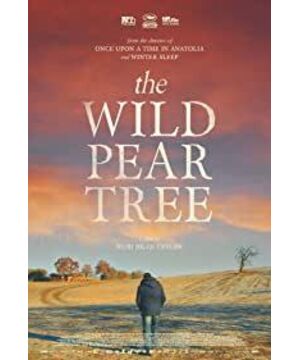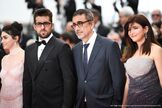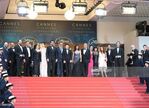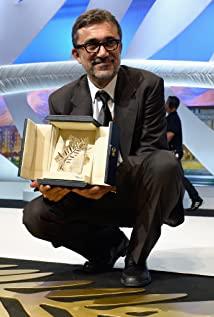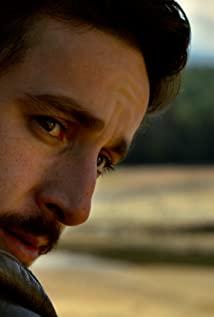Thinking of what Sinan said, trying to summarize the central idea of a book in one sentence is futile, and so must the movie.
One of the lines may be some of the friction brought about by modernization and thinking about new and old, change. Especially when the background is placed in a small city and a small place, this impact is amplified. Among them, there is a dialogue between Sinan and two other characters. They discuss the existence of religion, crime rate, whether religious beliefs are suitable for modern society, etc. I can't remember how long they talked. The scene starts from picking apples to three people walking on a country road. , and then sat down at the table, two people on motorcycles appeared in the middle. I suddenly remembered a previous episode where Sinan walked through a small town while on the phone, and the cameras followed from different angles, passing through all kinds of silent and noisy scenery.
Speaking of the main character of Sinan, he should be the kind of person who is more pretentious, ambitious, likes to question, speaks directly, and is a little idealistic. He felt that he was different from the rest of the village, he was unwilling to be "degenerate" like them, and he wanted to leave. But he also loves the land under his feet very much. What he sees is the life of every ordinary person, the culture and life of the village. This should also be the contradiction of many people now.
In fact, each dialogue lasted for a long time, but it did not make people feel abrupt or separated. Family life, a few poetic shots, and a few dreams connect them all. The film starts from autumn and continues to winter. The pace is slower, but there are many places for people to think and digest.
View more about The Wild Pear Tree reviews


